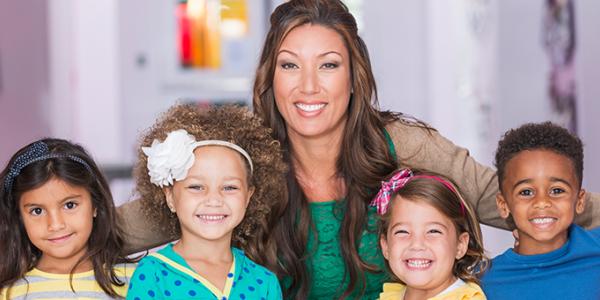Resources to Help Young Children Cope in the Aftermath of Violence

Nearly 25 years ago, NAEYC created a position statement on Violence in the Lives of Children, in which we wrote, “The violence that plagues our nation has many sources, and its elimination will require systematic attention at many levels. Most importantly, the citizens of our nation must become outraged...and must turn this outrage into positive action and increased resources toward preventing violence in the lives of children.”
How we wish we could write something different today—a story, perhaps, of a country that changed hearts, minds, and laws to ensure that children and families could live free from violence in their homes, schools, and communities.
Instead, nearly each word of the 3,500 we wrote then—before Jonesboro and Columbine; before Virginia Tech and Newtown—continues to ring heartbreakingly true. As we write this message, it has been six weeks since 58 people were murdered at a concert in Las Vegas, Nevada. It has been one week since 26 people were murdered at a church in Sutherland Springs, Texas. In the past 72 hours alone, 84 people across the country were killed in an act of gun violence. Among the lives lost were children, and parents of children; and their teachers, grandparents, sisters, brothers, uncles, aunts, friends and neighbors. Less tangible losses, of innocence and a sense of safety, are suffered by our children as well.
As a country, we have come to accept future losses as a given. Yet as early childhood educators, our Code of Ethics obligates us to continue working, through “education, research, and advocacy, toward an environmentally safe world in which all children receive health care, food, and shelter; are nurtured; and live free from violence in their home and their communities.”
To that end, NAEYC remains committed to the spirit of the goals outlined in the position statement, namely: to influence public will, action, and policy by collaborating with partners to reduce the causes of violence; and to enhance the ability of educators to respond to violence with tools and practices that acknowledge and address its impact on children.
In addition to our existing resources on helping children cope with violence, fostering their social-emotional development, and creating trauma sensitive classrooms, NAEYC will continue to develop and share new resources that support you and your work as early childhood educators, even as we continue to join the fight for health and mental health care that supports children and families and for federal investments that support communities, and as we speak out against racism and bias.
In the wake of ongoing tragedy, there is no one right way to mourn, nor one right way to act. Some of us will be sad; some angry; some defiant. Some of us will call legislators; some will rally; some will donate. Some of us will work quietly; some will get loud. Some will want to focus on society; some on their family; some on their classroom or home.
In none of these responses are any of you alone. NAEYC stands with you. And as part of our shared vision in which all young children thrive and learn in a society dedicated to ensuring they reach their full potential, we hope you continue to reach out to, engage, and stand with each other, and with us.
Lauren Hogan is the managing director of policy and professional advancement for NAEYC, in Washington, DC.
